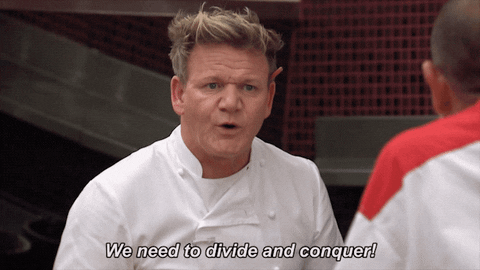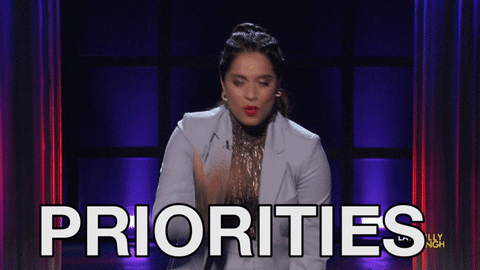My learnings on "How to" task management and organization
 One of the things I’ve struggled with the most in my work environment as I immerse myself in the software development area is task management. Usually, the number of tasks and the priorities we need to complete when working with a team or on our own changes from day to day. Meaning that if we are not careful, we might forget about the things that we need to work on or even face a To-do list full of pending and overdue tasks…
In addition, our life is not work-based, we have personal goals and multiple activities that we want to do once our working day is over. Not properly organizing all these tasks can make us feel overwhelmed and less productive than we would like to be at the end of the day.
How to prioritize and organize the tasks so I can have an overview of them has been one of the most important qualities that I’ve learned during my time in the tech industry (and continue improving as of the time writing this). Even if my techniques and knowledge are far from perfect, I hope you find the following recommendations useful for your daily life.
Now,
One of the things I’ve struggled with the most in my work environment as I immerse myself in the software development area is task management. Usually, the number of tasks and the priorities we need to complete when working with a team or on our own changes from day to day. Meaning that if we are not careful, we might forget about the things that we need to work on or even face a To-do list full of pending and overdue tasks…
In addition, our life is not work-based, we have personal goals and multiple activities that we want to do once our working day is over. Not properly organizing all these tasks can make us feel overwhelmed and less productive than we would like to be at the end of the day.
How to prioritize and organize the tasks so I can have an overview of them has been one of the most important qualities that I’ve learned during my time in the tech industry (and continue improving as of the time writing this). Even if my techniques and knowledge are far from perfect, I hope you find the following recommendations useful for your daily life.
Now,

Tasks and time management are complicated…
No! Well… not as you could think. A lot of people might say that having to write down what they need to do, organize it and maintain it requires time and commitment…and they are not wrong. However, it is not as complicated as we could initially expect. Like most of the things worth our time, start controlling and managing your time, and setting the basis for it can take some of your time, but you would be surprised to see how time-saving it ends up being once you start implementing it. We all want to achieve something in our life. If you want to know how to play the piano, you need to invest time in it. If you want to start learning a new language, it is ideal for you to dedicate a couple of minutes a day to this goal. In addition, chances are you also want to dedicate and spend some time with your loved ones, work, study, and watch that movie you’ve been wanting to watch since a few weeks ago… This is just the tip of the iceberg, thinking about all the things we want and need to do can be overwhelming if we just think about it as a whole and keep it in our heads. However, we need to start visualizing all of those things, and you’ll soon realize that writing them down will help you achieve this and use the overview to get your tasks done.
Write them down
 It’s as easy as that, take a piece of paper or your keyboard of preference to start writing those things somewhere outside your head. What do I do on a daily basis? What do I want to start doing? What do I want to achieve? What do I need to achieve it? When can I do that? Do I have milk in my fridge?
It’s as easy as that, take a piece of paper or your keyboard of preference to start writing those things somewhere outside your head. What do I do on a daily basis? What do I want to start doing? What do I want to achieve? What do I need to achieve it? When can I do that? Do I have milk in my fridge?
Just write it! This will allow you to remove all the heavy load your brain is currently charging into a single place for you to start visualizing and organizing them. Don’t think about what is worth putting in there or not, just put it in there, we’ll soon get to identify what you really want to do. Keep in mind that this is a personal process, you are the one writing all of these ideas down, this is what you want to achieve and only you can control this. Once you’re done, you’ll have a list full of things that you want to achieve. Good work! However, it is nothing but a To-Do list at this point…and even if it can work for you as it is right now, you might like to stay a bit longer to see how much it can improve.
Categorize them
You might want to check that list again, it’s still quite messy… A good way to avoid this is by categorizing those tasks. As I said before, we have a lot of things going on, we might want to write down things from work or our studies, but we could’ve also written personal goals and projects, housing tasks such as paying the rent, walking the dog out, or reading the last book of The Lord of the Rings trilogy.
You will be adding all the tasks you listed into multiple categories, the ones related to your job into a “Work” category! Add all the tasks related to your home into a (you guessed it) “House” category and/or your personal project’s tasks into a category with the name of that project.
 This is also the time when you archive or remove all of those tasks you do not really see as relevant to you. Do not be afraid of removing them, it is always better to care about what really matters. If you feel like something could be important for you in the future, you can always create an “Archived”/”Later” category for you to check once a month and see if the relevance of the tasks in there has changed.
I’ve learned that diving and grouping this list according to each aspect of our life can allow you to know what your goals for each one are. If there is something missing in a particular aspect, just add it. Something doesn’t fit? Maybe it’s not in the right category or you just don’t really need it. Feel free to play with this since you would like to start dedicating time to what you consider important for you, and the moment has come.
This is also the time when you archive or remove all of those tasks you do not really see as relevant to you. Do not be afraid of removing them, it is always better to care about what really matters. If you feel like something could be important for you in the future, you can always create an “Archived”/”Later” category for you to check once a month and see if the relevance of the tasks in there has changed.
I’ve learned that diving and grouping this list according to each aspect of our life can allow you to know what your goals for each one are. If there is something missing in a particular aspect, just add it. Something doesn’t fit? Maybe it’s not in the right category or you just don’t really need it. Feel free to play with this since you would like to start dedicating time to what you consider important for you, and the moment has come.
Divide and conquer!

We are humans, we need time to do stuff, this means that if we want to achieve something, we need to dedicate time to it. Starting your own business requires time, but knowing that you want to do it is not enough. You often need to know what it is going to be about, if you are going to do work on it alone, where to get the capital to make it grow, etc…These are multiple activities that require your time to be well thought out and achieve, however, they are still part of your main goal since you need to work on most of them to get it done. Since each one of the tasks you have requires its own time, all of them require their own space on your agenda. Sometimes it’s better not to try to get one task done at once, trying to be more organized not only means finishing stuff but getting things properly done. Diving the big tasks will allow you to know what you have to do according to your capacity and available time and how to proceed once that’s done. Additionally, you will be reaching every milestone you need to get to the top of your goal, which will motivate you, even more, to get there, without trying to get to the last step with a big burnout (imagining that you did not give up in the process).
Prioritize those tasks
 We are almost there! You should now have multiple lists full of tasks that you have to do in order to finish your projects and daily activities. How do you know where to start? Prioritizing your tasks will allow you to know what you need to focus on to start getting them done. This will give all your tasks a structured path that you can follow in order to get to the top of this mountain.
Asking yourself questions like: “What do I need to complete this task?” “What do I need to do as soon as I finish this task?” “What is blocking me to achieve my main goal?” can help you build a workflow based on the priority of each task and its dependency on others.
One of the most common ways to prioritize your tasks is to do this based on deadlines. However, remember that deadlines do not always correspond to high priority. You might have long-term tasks valuable for you, analyzing the impact of those tasks can help you figure this out.
Only you know what the impact of each task is, some of them will allow you to complete other tasks, and some of them will make you feel the progress and ready to get others done. Knowing what finishing these tasks will reward you is important in order to know which ones are the most important ones.
We are almost there! You should now have multiple lists full of tasks that you have to do in order to finish your projects and daily activities. How do you know where to start? Prioritizing your tasks will allow you to know what you need to focus on to start getting them done. This will give all your tasks a structured path that you can follow in order to get to the top of this mountain.
Asking yourself questions like: “What do I need to complete this task?” “What do I need to do as soon as I finish this task?” “What is blocking me to achieve my main goal?” can help you build a workflow based on the priority of each task and its dependency on others.
One of the most common ways to prioritize your tasks is to do this based on deadlines. However, remember that deadlines do not always correspond to high priority. You might have long-term tasks valuable for you, analyzing the impact of those tasks can help you figure this out.
Only you know what the impact of each task is, some of them will allow you to complete other tasks, and some of them will make you feel the progress and ready to get others done. Knowing what finishing these tasks will reward you is important in order to know which ones are the most important ones.
Let me check my agenda…
Scheduling is one of the most important steps, this will allow you to have an idea of what to do and when to do it. It’s important for you to consider the effort a task requires before adding it to the calendar. Some of the tasks you need to do can take up to 5 minutes, but you won’t be starting your own company within this time. Time is crucial, and even if your estimation won’t be precise, dedicating the correct amount of it to a task that deserves it will allow you to prepare the space (physical and mental) to start working on it. Don’t forget that honesty is key and even if a task might seem easier for others if it requires additional time for you to finish it, plan accordingly. To do this, you can use tools like Google Calendar, Apple Calendar, or Fantastical. Don’t try to be picky, changing from tool to tool also takes time. It’s important to consider that your schedule does not have to be strictly followed. The objective of it is for you to have an idea of when you will work on these tasks, however, you are not a robot, and plans change, and situations you need to adapt to usually come up but having a path to follow will allow you to find the one you need to become the person you want to be.
Only you are in charge of your time
Your list should not be static, make it dynamic, this will allow you to work on what’s important for you and have a list you can trust. Don’t be afraid of changing things on it since it has to adapt to your main objectives. Therefore,e I highly recommend keeping it updated by double-checking the things on it every now and then. There are multiple ways to organize your tasks, I have written out a simple flow that will allow you to get better and better. It’s up to you to start organizing your time. The points written here are the ones that have helped me to finish some of my goals. Don’t be afraid of trying new and different things! There are things such as GTD and the Eisenhower Matrix that can be added to this (and that I might be talking about soon). The choice to use them is yours! Some of my recommended tooling:
1. Notion
3 Todoist
4 TickTick
5 Things 3
6 Notion ;)
All of us are different and we need to keep trying different things and tools until we find the one that fits us the most. However, consistency pays off, and one true thing is: “Do not leave for tomorrow what you can do today”.
Thanks for reading!
~SRhenals